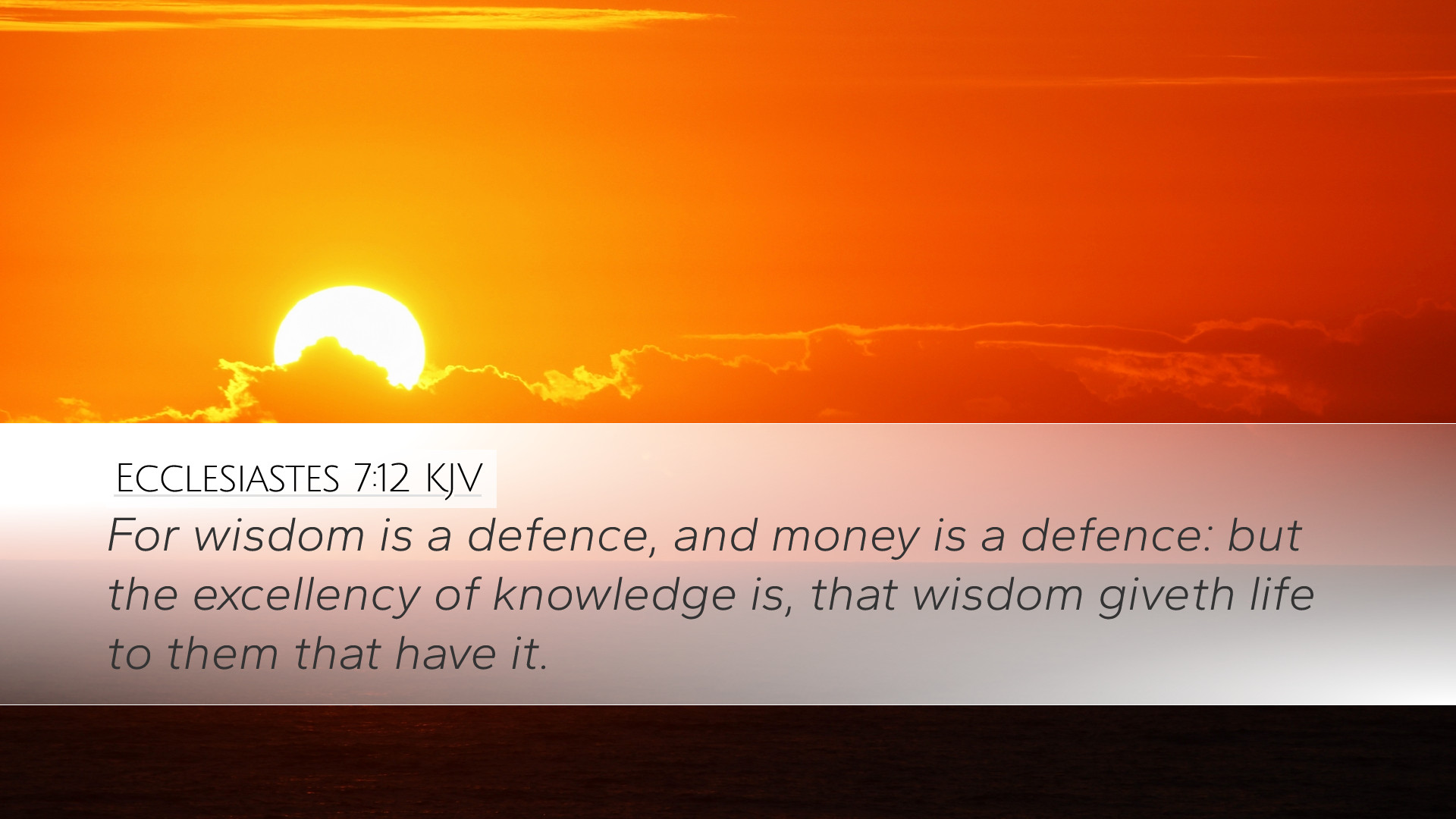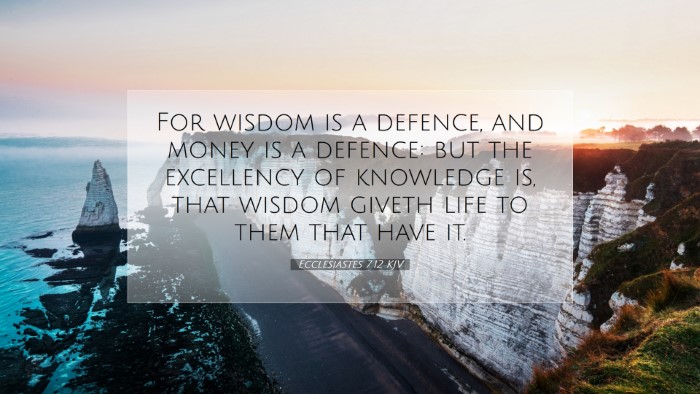Ecclesiastes 7:12 Commentary
“For wisdom is a defense, as money is a defense: but the excellency of knowledge is, that wisdom giveth life to them that have it.”
Introduction
The book of Ecclesiastes, traditionally attributed to Solomon, reflects on the nature of life and the pursuit of wisdom. In this particular verse, Ecclesiastes 7:12, we find a profound statement about the value of wisdom in comparison to material wealth. Drawing insights from various public domain commentaries, we will explore the theological implications and practical applications of this verse.
Contextual Overview
Ecclesiastes is a reflection on the vanity of life without God, emphasizing that earthly pursuits often lead to dissatisfaction. Solomon, having experienced much in life, recognizes the fleeting nature of wealth and the enduring value of wisdom.
Exegesis of Ecclesiastes 7:12
Matthew Henry focuses on the comparative analysis between wisdom and money. He notes that both serve as defenses in life—money provides some protection due to its ability to secure physical comforts, while wisdom offers a deeper form of safeguard against life's trials and uncertainties.
- Wisdom as a Defense: Henry posits that wisdom equips one with discernment, leading to choices that foster peace and safety, much as wealth can provide tangible security.
- Money's Temporal Nature: While money can provide temporary relief, it is ultimately limited and transient, whereas wisdom can yield lasting benefits.
Albert Barnes adds that the phrase "the excellency of knowledge" implies that wisdom transcends mere protective qualities of wealth. Genuine wisdom not only defends but enriches life by offering insights that lead to a fuller existence.
Theological Insights
From Adam Clarke's perspective, the verse underscores a cardinal truth about the human condition: reliance on material wealth is ultimately unsatisfying. Clarke argues that wisdom, arising from a relationship with God, is indispensable for an enriched life. He elaborates on several key points:
- Life Source: Clarke notes that true wisdom offers life, both in quality and in spiritual vitality, shaping nearness to God and personal integrity.
- Ultimate Protection: In spiritual terms, wisdom acts as a shield against the futility of life’s pursuits, enabling believers to see beyond the immediate and grasp eternity.
Practical Applications
This verse calls for a reflection on the priorities within the Christian life. As pastors, students, and theologians, the following insights are applicable:
- Wisdom Over Wealth: Believers are encouraged to invest in spiritual wisdom through theological study, prayer, and community, rather than solely focusing on material gain.
- Life Choices: Decision-making rooted in wisdom leads to a life that is not only fulfilling but aligns with God’s purposes, showcasing the importance of seeking divine guidance.
- Teaching and Discipleship: Educators in the faith community should prioritize teaching wisdom from Scripture, encouraging learners to value knowledge that leads to life.
Conclusion
Ecclesiastes 7:12 encapsulates the tension between material wealth and the far-reaching benefits of wisdom. As elaborated by Matthew Henry, Albert Barnes, and Adam Clarke, wisdom offers a profound defense against the adversities of life, enriching the soul and guiding one toward genuine fulfillment. In a world often seduced by the allure of money, this verse serves as a clarion call to cherish wisdom, viewing it not merely as a protective force but as a catalyst for life itself.


